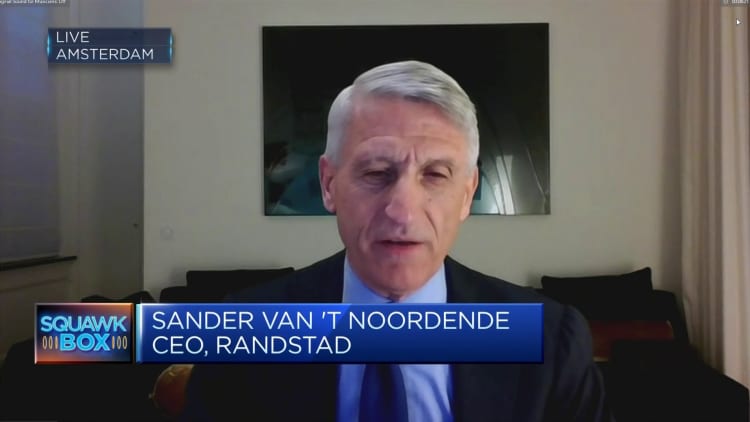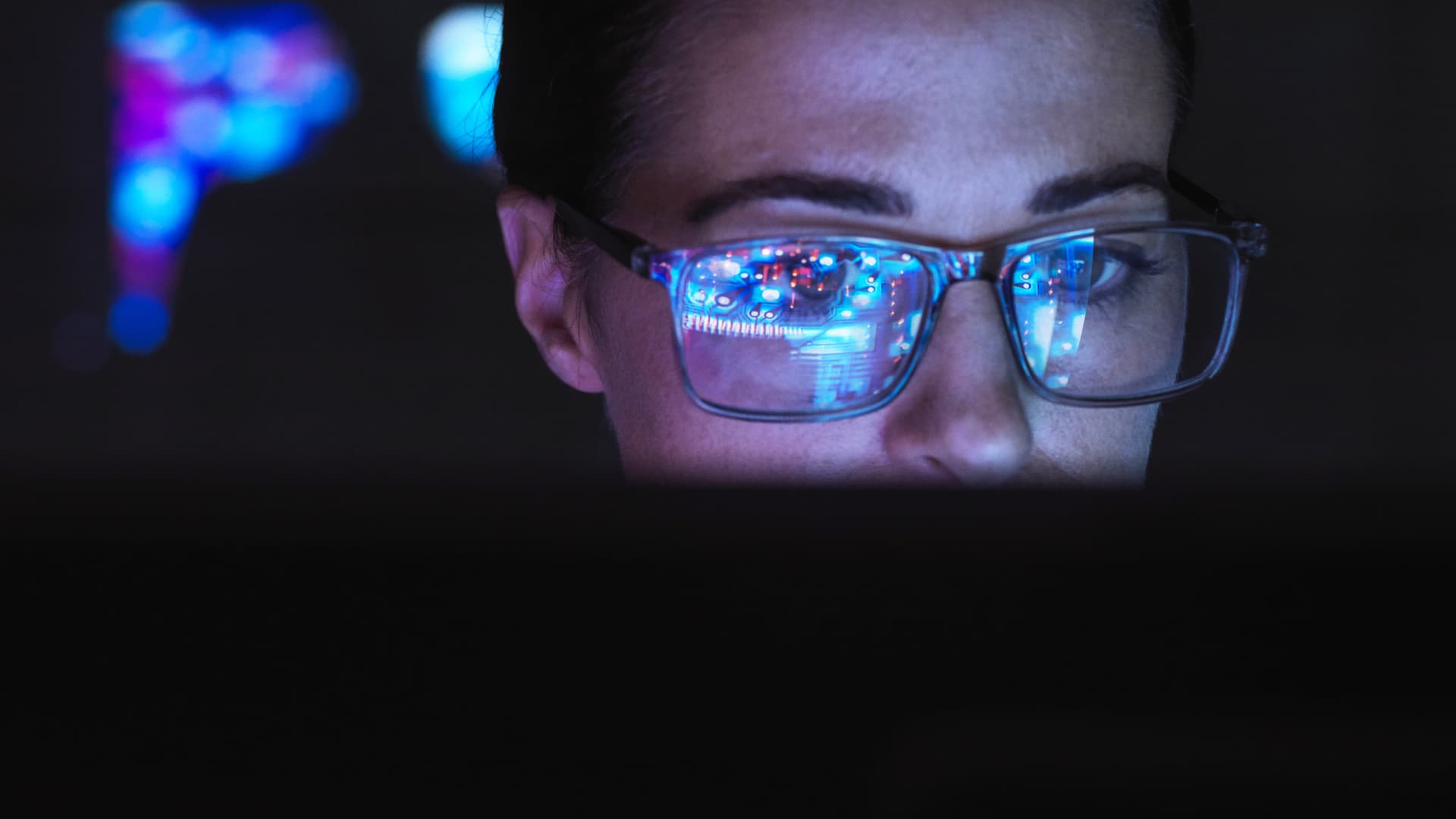Westend61 | Westend61 | Getty Images
The artificial intelligence boom has sparked concerns and controversy around employment, mounting fears that AI will replace jobs or affect pay, as it optimizes processes and requires a lower skill level from employees.
But, if your job is affected by AI, your salary might actually increase, Sander van’t Noordende, CEO of talent company Randstad, told CNBC’s “Squawk Box Europe.”
As a CEO who has integrated AI into jobs in a way that makes employees’ life easier, he said company owners are “going to be paying [personnel] more to do a job that adds even more value.”
Deploying AI can help employees use their time more productively and in a more impactful way for companies, van’t Noordende explained.
“AI increases productivity, helps you do a better and a faster job so that you can spend more time with your clients, in our case with our candidates, with your colleagues, venturing into new areas so its freeing up time to do more high value things.”

AI tools will also not fully replace human employees, van’t Noordende said, acknowledging that the technology has immense potential and capabilities, but “cannot do everything.” That means there is always something else that humans can do beyond AI, he explained.
Estimations about the AI impact on jobs have been coming in a wide range since the AI boom began with the launch of ChatGPT in late 2022.
Goldman Sachs last year assessed that as many as 300 million jobs could be affected by AI in some way, and a Pew Research Center report suggested that about 1 in 5 employees in the U.S. are working a job that has “high exposure” to AI. Data from ResumeBuilder also found that AI-related job losses are on the rise.
But many experts have also pointed out that AI could create new jobs instead of just erasing them, similar to other technological advancements in the past.
Some hold that the job impact of AI may in fact be much smaller than the effect of other economic issues, such as slower growth and higher costs for businesses — so these factors might be far bigger threats for workers.
It may also take more time before the full influence of AI is felt by workers, van’t Noordende explained. Just one in eight companies is currently using the technology “at scale,” he noted, while other employers are still experimenting.
“For AI to really get absorbed at scale, get implemented at scale will take a while,” he said. “We are sort of at the peak of the hype cycle now, you know, everybody’s totally excited, but it takes more to get AI at scale in a responsible way, and that will take time.”

